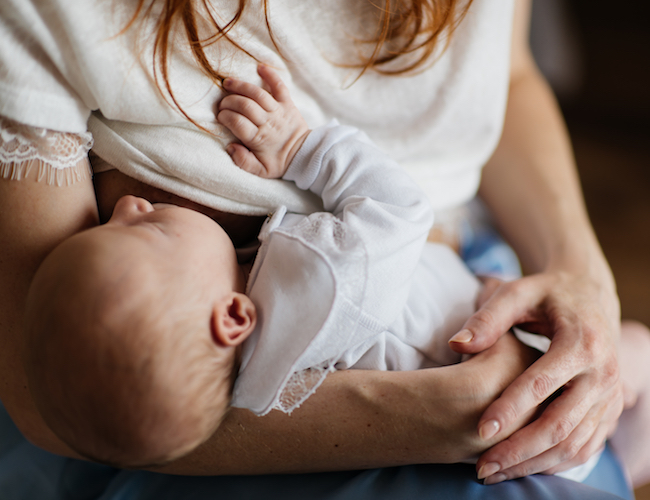Should you be concerned about conceiving while breastfeeding?
Conventional wisdom would have us believe that breastfeeding prevents women from conceiving in the early months after giving birth. However, this is not always the case. We got in touch with a registered midwife to learn more.
Breastfeeding is known to lessen the odds of falling pregnant
According to Sr. Nicolene Laubscher, a registered midwife based in Paarl in the Western Cape, exclusive breastfeeding (by itself) is 98-99.5% effective in preventing pregnancy as long as all of the following conditions are met:
• Your baby is less than six months old.
• Your menstrual periods have not yet returned.
• Baby is breastfeeding on cue both day and night and gets nothing but breastmilk or only token amounts of other foods.
If you practice ecological breastfeeding:
• Chances of pregnancy are practically zero during the first three months, less than 2% between 3 and 6 months, and about 6% after 6 months, assuming mom’s menstrual periods have not yet returned.
• The average time for the return of menstrual periods is 14.6 months.
“It is possible to have one or (occasionally) more periods before you start ovulating. In this case, menstruation begins during the first stage of the return to fertility – before ovulation returns. Cycles without ovulation are most common during the first six months postpartum,” says Nicolene.
“A very small percentage of women will become pregnant during their first postpartum ovulation, without having had a postpartum period. Per fertility researcher Alan S. McNeilly, this is rare and in our experience is related to a rapid reduction in suckling input.”
You may not need to wean to get pregnant
Wondering whether you need to wean if you wish to get pregnant again after having your first child? Probably not. According to Nicolene, if you are still transitioning to full fertility (as discussed above), breastfeeding may affect the success of implantation. Once implantation is successful, breastfeeding should not affect a healthy pregnancy.
“In contemplating the healthiness of an overlap, you will want to consider how breastfeeding is fitting in with your needs for rest, adequate pregnancy weight gain, and your overall sense of well-being. You will do well to take into account that breastfeeding can be painful or agitating for many mothers for some or all of pregnancy, leading some mothers to push for weaning. The milk tends to dwindle by mid-pregnancy, some children self-wean in response, while others don’t seem to mind,” suggests Nicolene.
IMAGE CREDIT: shutterstock.com



